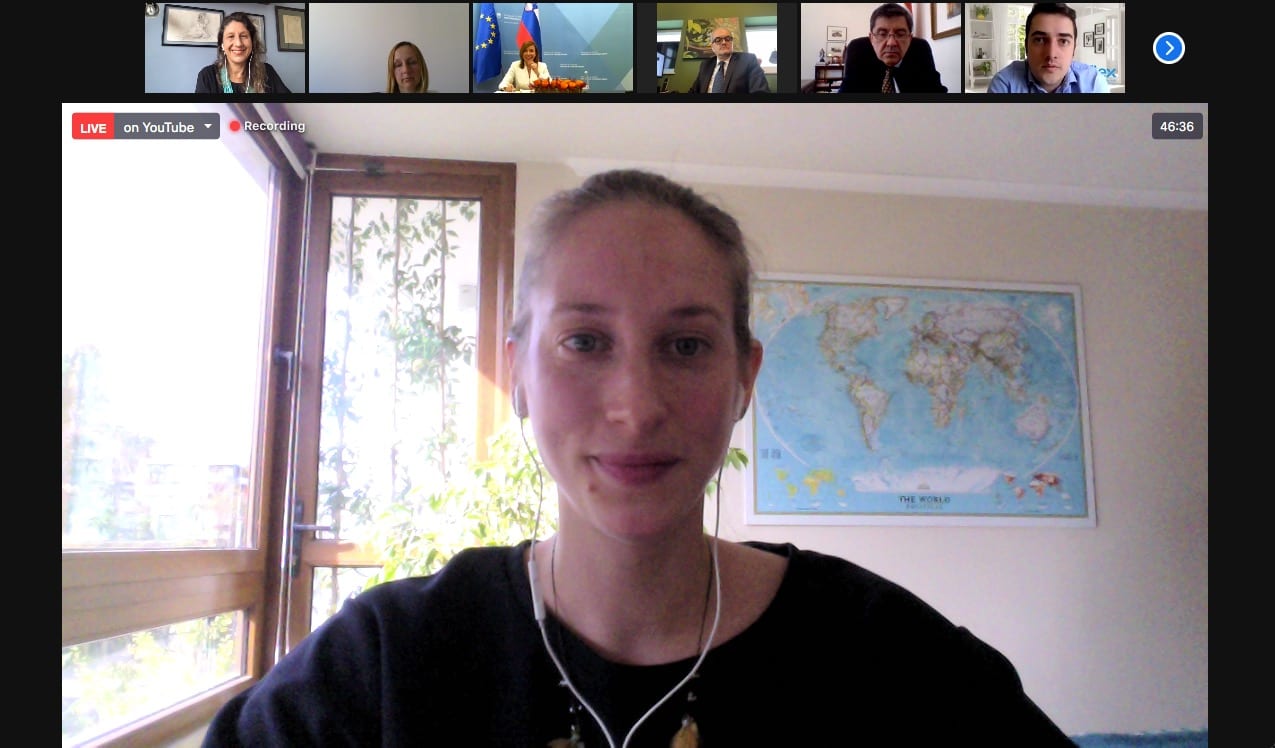Eurochile presents its experience in circular economy at the LAC Days 2021 organised by Slovenia
Since last April 19, the third international conference “Latin America and the Caribbean Days” or “LAC Days”, organised by the Ministry of Foreign Affairs of the Republic of Slovenia within the framework of the Bled Strategic Forum, has been taking place in a virtual format. The objective of the LAC Days is to strengthen bilateral and bi-regional cooperation between this European nation and the region, as well as to generate links between its companies and institutions on cultural, economic, environmental, science and research issues, among others.
This year, among the topics to be discussed in this conference, a special emphasis was placed on the green transition and recovery, including a special session for the circular economy, moderated by Ladeja Godina, where Eurochile Business Foundation had an outstanding participation in its leadership role and articulation of the Roadmap for the Circular Economy recently prepared by our country, represented by the director of the Area of Technology Transfer and Circular Economy of Eurochile, Linnet Solway.
In this session, together with representatives from Slovenia and Brazil, advances and good practices were analysed to promote the circular economy in both regions, exploring the different dimensions of this transition from the perspective of national and international networks, research and innovation; the contribution to a highly ambitious Green Deal and the role of network governance. Also how to address the challenge of plastics in its different contexts and how the systemic approach enables the connectivity of key points to drive this transition within countries and globally.
In her presentation, Linnet Solway highlighted the key milestone for Eurochile – “and more importantly, for the country” – that Chile is on the final stage of publishing the final version of its Roadmap for the Circular Economy thanks to the work and support of many national and international actors, among them Circular Change, led by the Slovenian Ladeja Godina. But more than the document itself, she added, what was most relevant was the shared process for its construction and elaboration.
“This participatory process allowed leveraging and giving direction to the impulse of the circular economy in the country. It required articulating key actors from different sectors, representing the different levels of society, and it allowed creating a space for participation and interaction between all these actors for decision-making and reaching consensus in a process – in my opinion – quite unique for Chile. And all this in the context of the pandemic: we did not meet in person even once, “said Solway.
To this, she added, two other very relevant milestones for the advancement of the circular economy in Chile were added in recent months in the country: the entry into force of two EPR Law decrees (one for tires and the other for packaging) that establish the collection and recycling targets that producers must meet starting 2023; and the approval, by the Chamber of Deputies, of a bill to ban single-use plastics, currently in its final phase of approval in the Senate.
“It is difficult to say wether the pandemic has accelerated the discussions and the implementation of the circular economy in Chile – there was already a momentum going on before COVID – but without a doubt, interest continues to increase and reach more and more actors in society, and lot of new initiatives are seeing the light of day every week. So that’s really exciting,”added Linnet Solway.
All this, she said, also imposes a series of challenges for the materialization of this trend. In this regard, she advanced the three priorities that Eurochile will work on for 2021, and during the next few years, related to the implementation of the circular economy: working with SMEs and defining which circular economy is suitable for them, how they can participate and support this transition -especially- from the Eurochile Circular Economy Working Group; bring the circular economy to the local level, to the regions of the country; and articulate value chains and systems in the territories, focusing on promoting the circular economy as a competitive framework for the recovery, diversification and re-activation of the local business ecosystem.
The LAC Days 2021, which close today, had a wide audience in Europe and Latin America, bringing together representatives of European Union institutions, research centers and associations, science and academia, the business community, culture, the diplomatic corps and politics.

